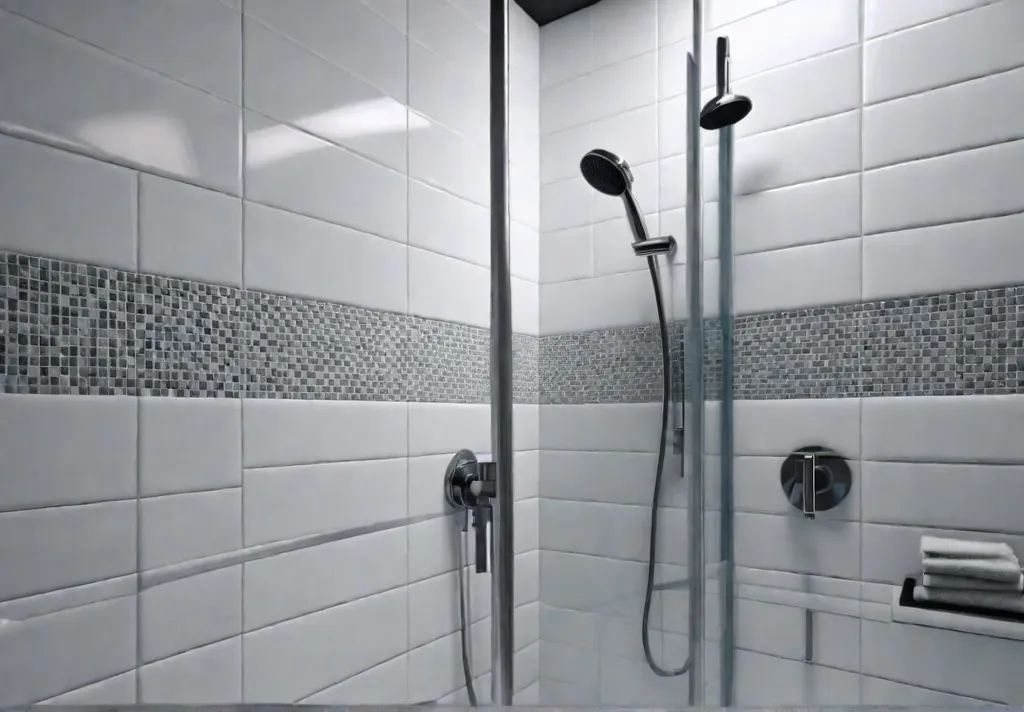Have you ever stepped into a gorgeous tiled shower only to be immediately distracted by the grout lines? The wrong grout can ruin even the most beautiful tile work, whether cracked, discolored, or just plain drab. But fear not, dear renovators! With some know-how and the right product, you can elevate your shower from dull to dazzling with the perfect grout.
Imagine sinking your toes into those warm tiles, surrounded by a seamless, watertight oasis that looks as fresh as the day it was installed. That’s the power of grout – a humble yet mighty component that can make or break your shower’s overall aesthetic and functionality. So, let’s dive in and explore the world of grout, shall we?

The Grout Rainbow: Exploring Different Types
When it comes to grout, one size doesn’t fit all. Just like the tiles themselves, grout comes in various materials and textures, each with unique strengths and weaknesses.
Cementitious Grout: The Classic Choice
Ah, cementitious grout—the trusty workhorse of the grout world. Made from a simple mixture of cement, sand, and water, this budget-friendly option has been a go-to for tile setters for decades. Its malleable texture makes it a dream to work with, and it’s perfect for DIY projects where you want to get your hands a little dirty.
However, as with any classic, cementitious grout does have its drawbacks. It’s more susceptible to staining and discoloration over time, especially in high-moisture areas like showers. But fear not! With proper sealing and maintenance (more on that later), this grout can still be a reliable choice for your shower tile project.
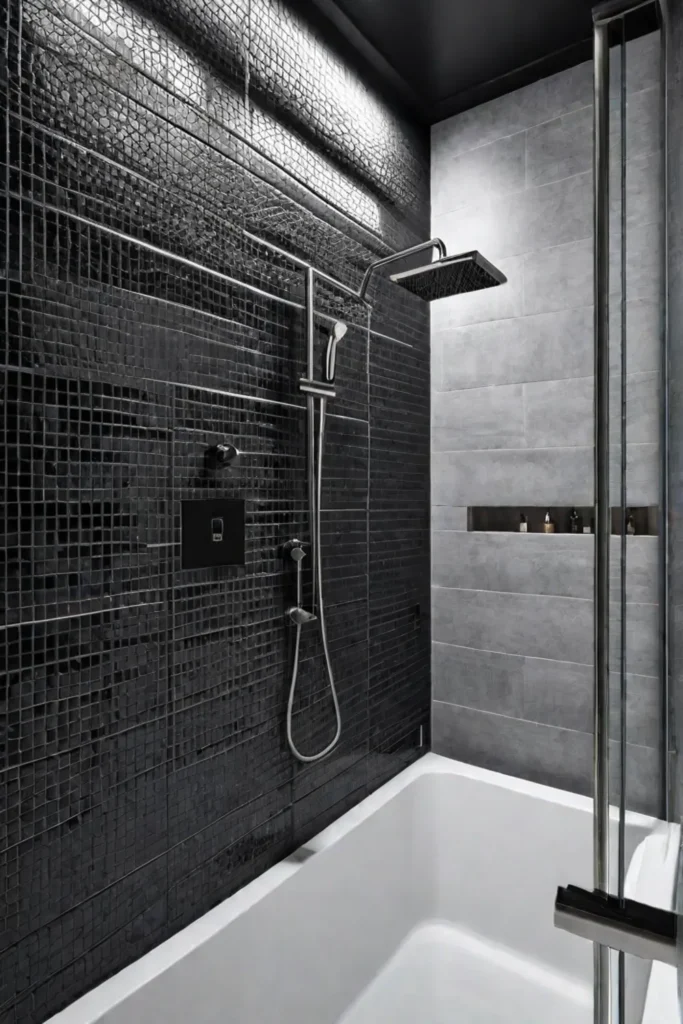
Epoxy Grout: The Stain-Resistant Superstar
If you’re looking for grout that can withstand even the toughest shower conditions, epoxy grout might be your knight in shining armor. Made from a hardworking blend of resins and hardeners, this heavy-duty material is practically impervious to stains, mold, and mildew.
Sure, epoxy grout comes with a heftier price tag, but its durability and low-maintenance requirements make it a worthwhile investment, especially for those high-traffic or dark-tiled showers. Plus, with its sleek, seamless finish, epoxy grout can give your shower a modern, almost industrial vibe that’s equal parts chic and practical.
Sanded vs. Unsanded: The Texture Tango
Now, let’s discuss the sandy side of grout. Sanded grout, as the name suggests, has a coarser texture due to the addition of sand. This extra grit makes it a better choice for larger grout lines, as it’s less likely to crack or crumble over time.
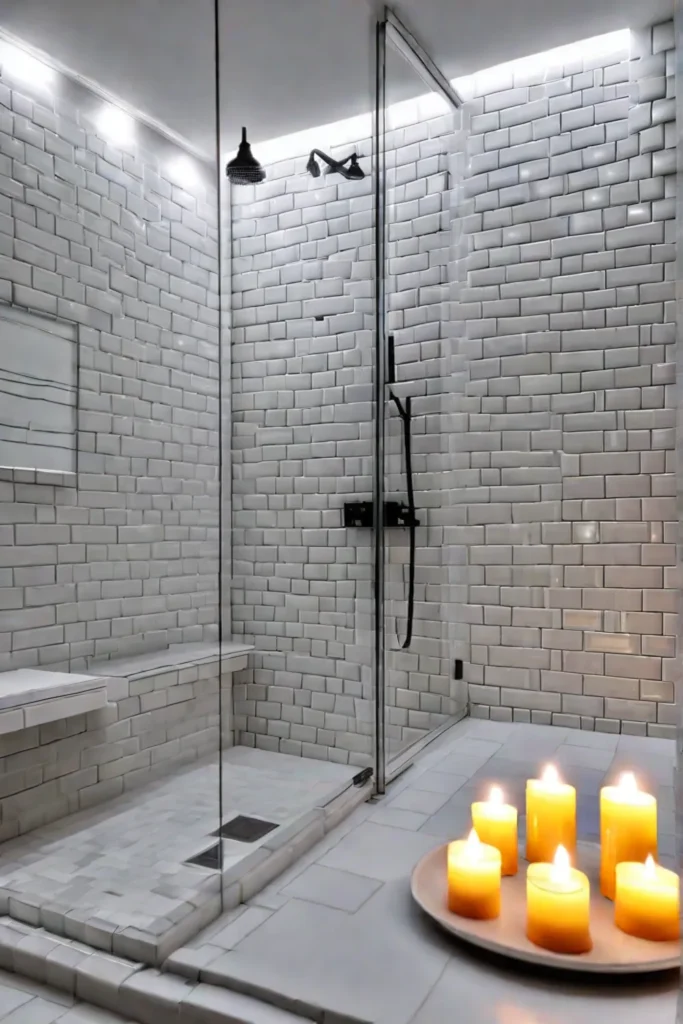
On the other hand, unsanded grout is the smooth operator of the grout world, gliding effortlessly into those narrow, delicate grout lines. Its silky texture makes it a dream to work with, and it’s less likely to shrink or crack during curing.
So, which one should you choose? Well, that all depends on the size of your grout lines and your preference. Wider lines? Go sanded. Narrower lines? Unsanded is your best bet.
The Color Conundrum: Finding the Perfect Grout Hue
Once you’ve nailed down the type of grout, it’s time to tackle the color problem. And let me tell you, the options are practically endless! From crisp whites to moody charcoals and everything in between, the right grout color can blend seamlessly with your tiles or create a bold, eye-catching contrast.
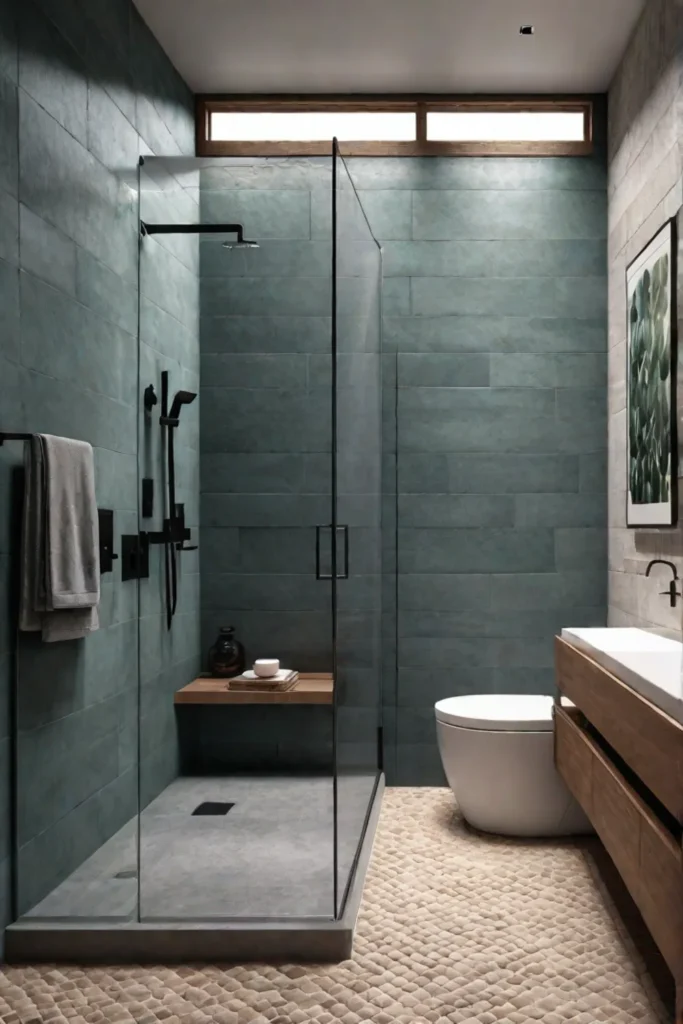
Neutral Tones: The Chameleons of the Grout World
If you’re aiming for a cohesive, understated look, neutral grout colors like white, gray, or beige might be the way to go. These versatile hues have a knack for blending in with just about any tile color or pattern, creating a seamless, almost invisible transition between tiles.
Lighter neutral grouts can also be a clever trick for making a small shower feel more open and airy. Just imagine those bright, breezy tones reflecting the light and creating the illusion of extra space!
Bold Contrasts: The Showstoppers
On the flip side, maybe you want to make a statement with your grout. In that case, a bold, contrasting color like deep charcoal or rich burgundy could be just the ticket. These daring hues accent the tile patterns and add depth to the overall design.
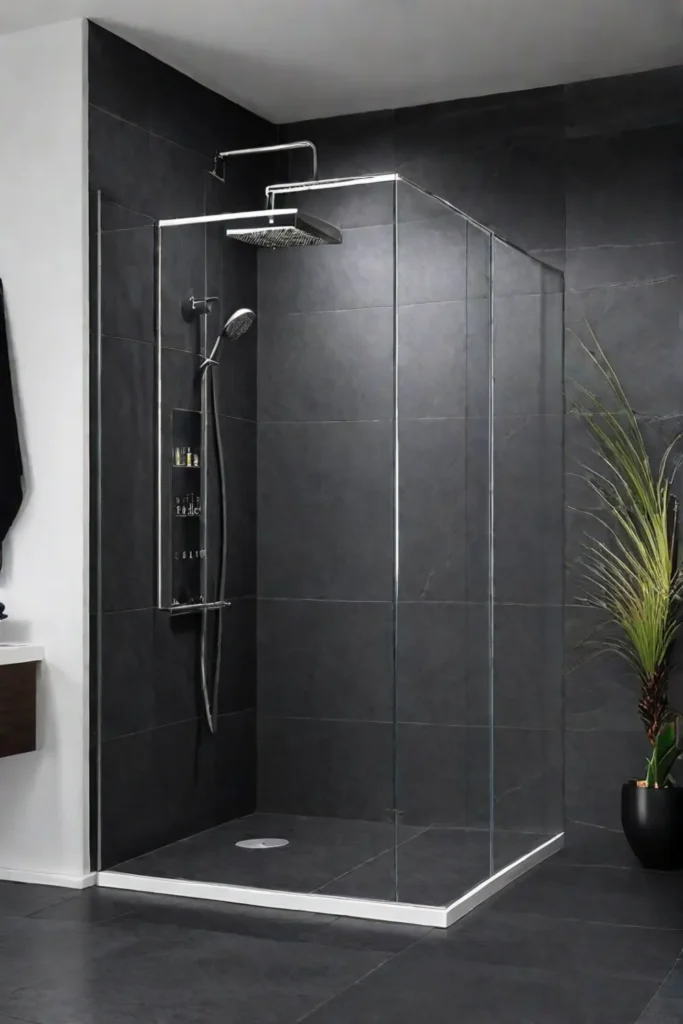
Of course, with great contrast comes great responsibility—darker grout colors tend to show dirt and stains more readily. But for those who don’t mind a little extra elbow grease in the cleaning department, contrasting grout can be a showstopping choice.
Color Matching: The Chameleon’s Cousin
Last, we have the color-matching grout – the chameleon’s slightly more daring cousin. By matching the grout color to your tiles, you can create a sleek, seamless look that practically makes the grout lines disappear.
This technique can be especially effective in small showers, as it tricks the eye into perceiving a larger, uninterrupted expanse of tile. Just be warned: color-matching grout requires a keen eye and a steady hand, as even the slightest variation in hue can throw off the whole effect.
The Maintenance Maze: Keeping Your Grout Looking, Grout
You’ve selected the perfect grout type and color – now it’s time to tackle the maintenance maze. Because let’s face it, even the most beautiful grout won’t stay that way without a little TLC.
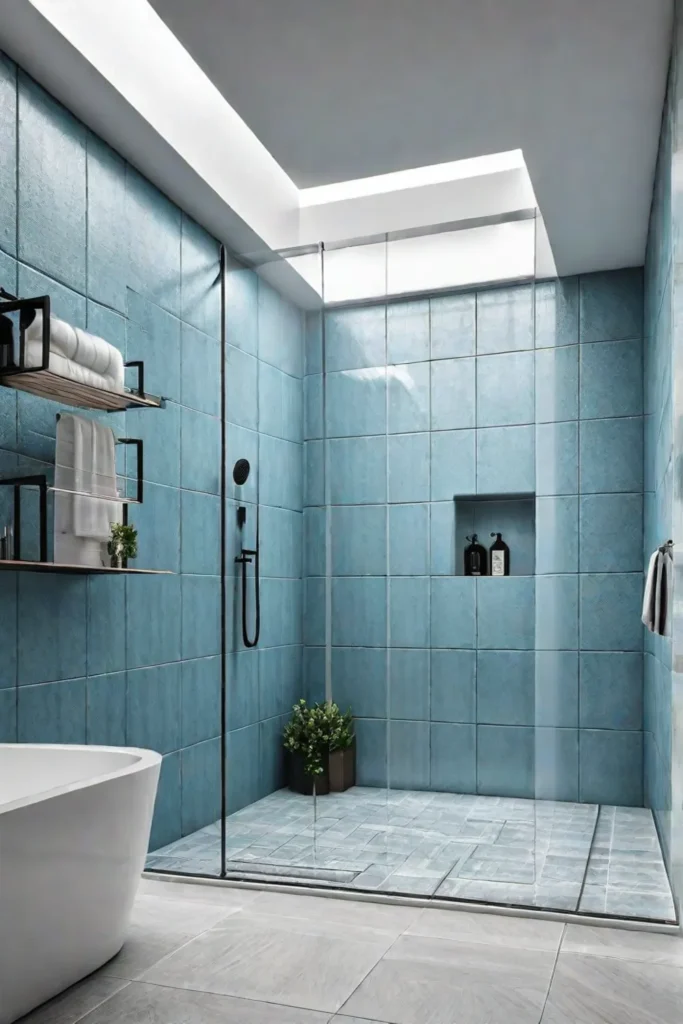
Sealing the Deal: The Grout’s Protective Coat
Think of grout sealer as the superhero cape for your grout – it’s that extra layer of protection that keeps water, mildew, and stains at bay. Properly sealed grout is like a fortress, resisting even the most stubborn shower grime and discoloration.
Most experts recommend sealing your grout every year or two, depending on the type of grout and the amount of wear and tear it endures. Trust me, taking the time to seal your grout is well worth the effort – it can extend the lifespan of your tiled shower and save you from costly repairs down the line.
The Cleaning Conundrum: Finding the Right Products
Speaking of maintenance, let’s talk about cleaning. Grout is notoriously porous, which means it can act like a sponge for dirt, soap scum, and mildew if left unchecked. That’s why using the right cleaning products is crucial for keeping your grout looking its best.
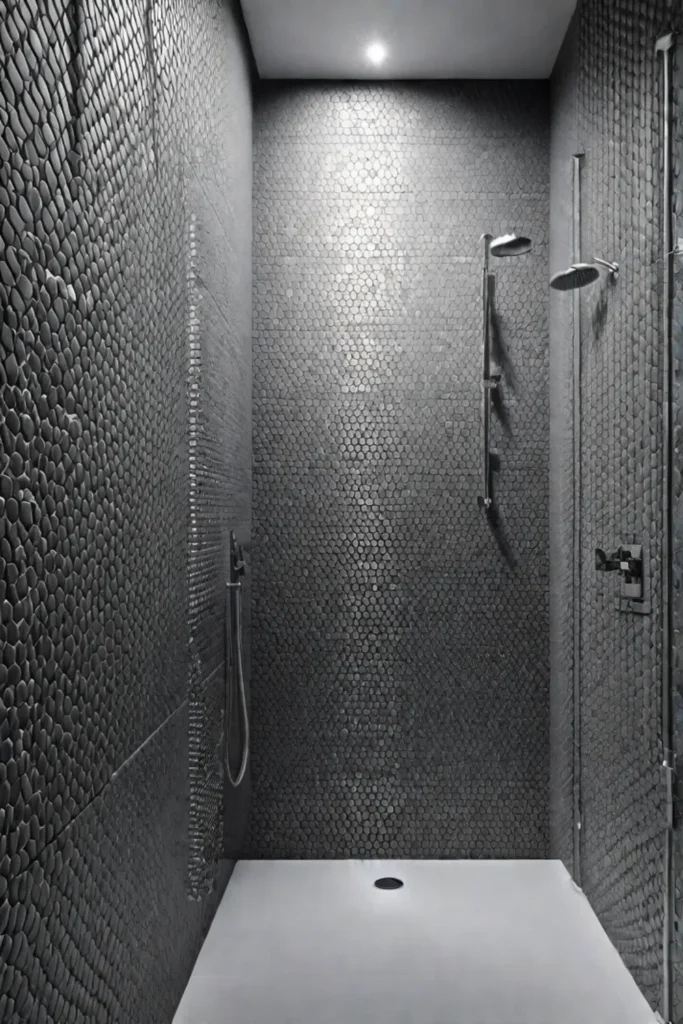
Avoid harsh, abrasive cleaners that can scratch or damage grout over time. Instead, opt for gentle, grout-safe formulas specifically designed to tackle tough stains and grime without compromising the integrity of the material.
And don’t forget about those trusty old cleaning tools like grout brushes and steam cleaners. They might take a little extra elbow grease, but they can work wonders to get deep into those pesky grout lines and restore that fresh, just-installed look.
The Specialty Squad: Grouts with Superpowers
Alright, you’ve mastered the basics—but what if you’re looking for grout that goes above and beyond? Enter the specialty grout squad, a team of high-performance products designed to tackle even the toughest shower conditions.

Stain-Resistant Grout: The Unstainable Wonder
Let’s be real – no matter how diligent you are with cleaning, stains are inevitable in a shower environment. That’s where stain-resistant grout comes in to save the day.
Formulated with special additives that repel dirt and grime, stain-resistant grout can keep your shower looking fresh and vibrant for years. Whether you’re dealing with makeup smears, soap scum, or just good old-fashioned grit, this grout has got your back.
Antimicrobial Grout: The Mold and Mildew Avenger
Ah, mold and mildew – the sworn enemies of any shower enthusiast. But fear not, for antimicrobial grout is here to conquer these unsightly foes!
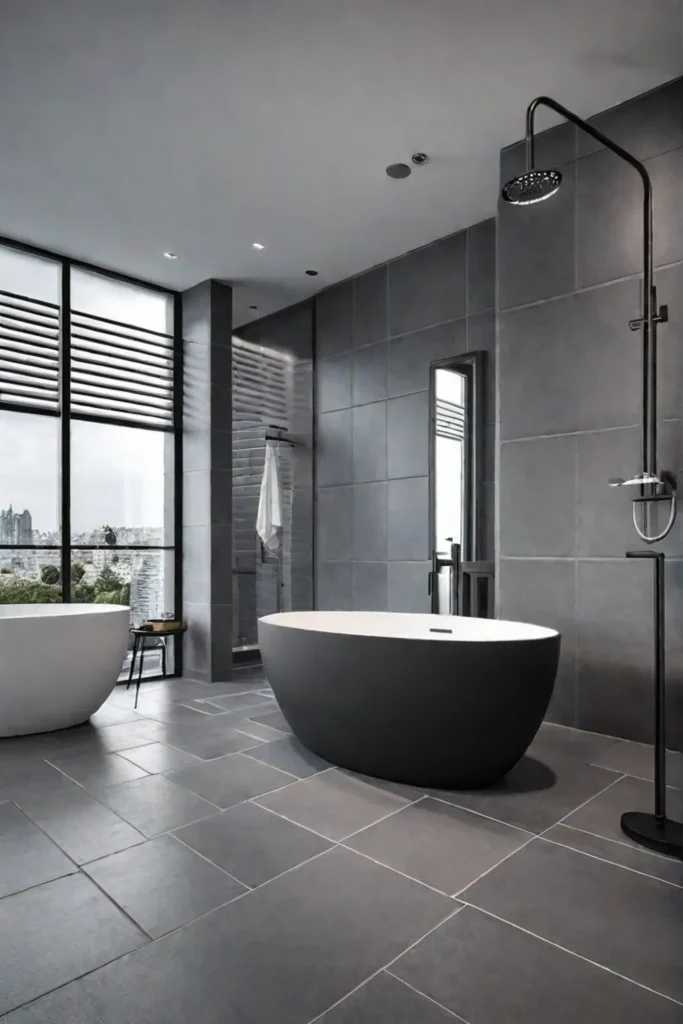
Infused with special agents that inhibit the growth of microbes, antimicrobial grout creates an inhospitable environment for mold, mildew, and other unwanted guests. So go ahead and crank up that steamy shower – this grout has your back (and lungs) covered.
Flexible Grout: The Bend-but-Don’t-Break Hero
Last but not least, we have flexible grout – the unsung hero of the specialty squad. This adaptable material is designed to expand and contract with temperature changes, making it a perfect choice for showers that experience extreme hot-and-cold fluctuations.
Flexible grout allows for a little wiggle room, which can prevent cracking, crumbling, and other unsightly damage when rigid grout is subjected to constant thermal stress. It’s like having a built-in shock absorber for your shower, ensuring a smooth, seamless finish that lasts.
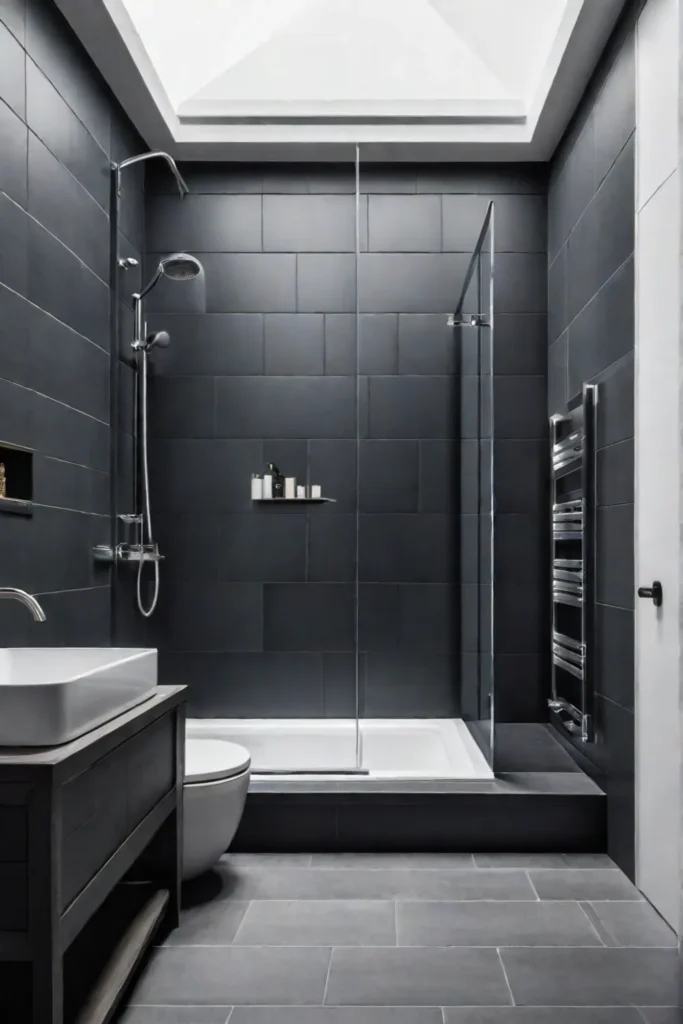
The Final Grout-ing: Bringing It All Together
Phew, what a journey we’ve been on! From exploring the different grout types and colors to diving deep into maintenance and specialty options, we’ve covered a lot of ground. But fear not, dear renovators – we’re about to tie it together with a nice grout bow.
When selecting the perfect grout for your shower tile project, there’s no one-size-fits-all solution. You must weigh your specific needs, preferences, and priorities against the unique properties of each grout type.
Are you looking for a budget-friendly option that’s easy to work with? Cementitious grout might be your go-to. Are you prioritizing durability and stain resistance above all else? Epoxy grout could be the answer. Or perhaps you’re dealing with extreme temperature fluctuations or a high risk of mold and mildew – in that case, flexible or antimicrobial grout might be worth the investment.
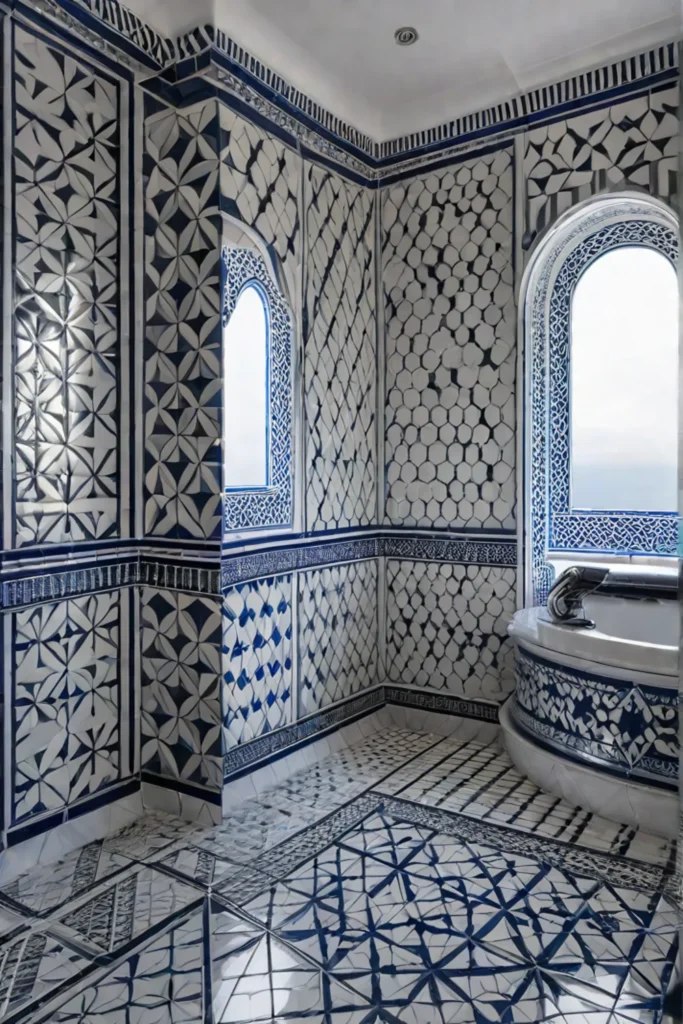
And let’s not forget about the all-important color choice! Whether you’re aiming for a sleek, seamless look or a bold, eye-catching contrast, the right grout hue can instantly transform your shower from drab to fab.
The key is researching, weighing your options, and choosing the grout that best aligns with your specific needs and design vision. And remember, even the most stunning grout is only as good as the maintenance routine behind it. So seal, clean, and care for your grout like the precious gem it is, and you’ll be rewarded with a shower that looks as fresh and fabulous as the day it was installed.
So go forth, dear renovators, and grout with confidence! With the right product and a little TLC, your shower can be the envy of the neighborhood – a true oasis of tile perfection that will have you singing in the rain (or, you know, shower) for years to come.
